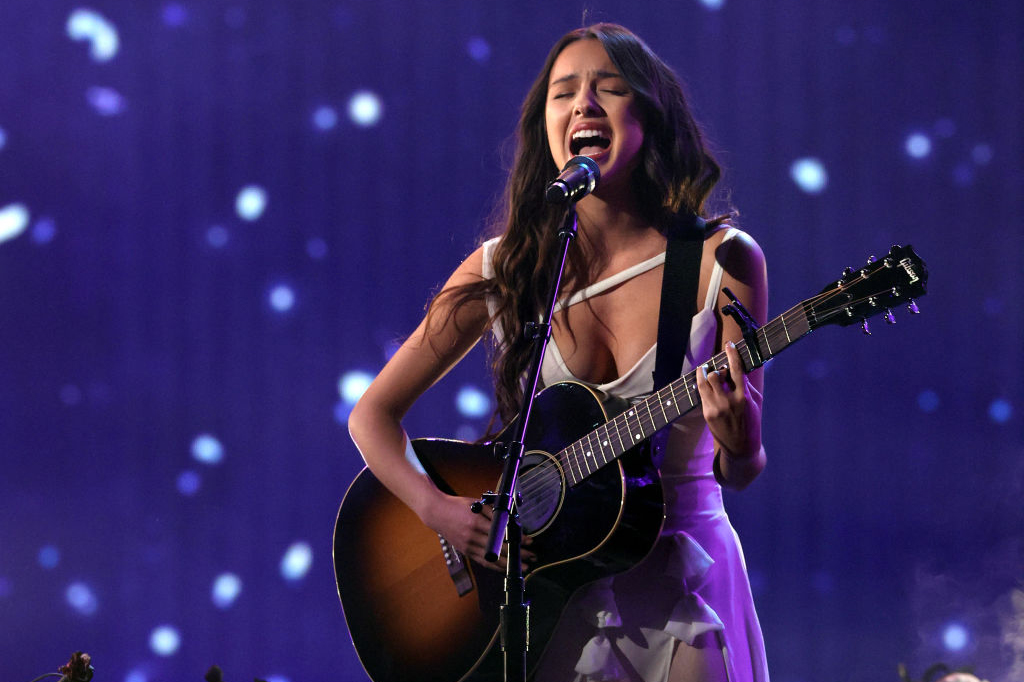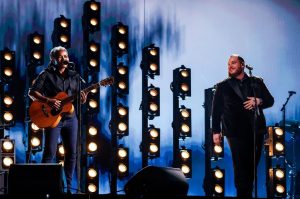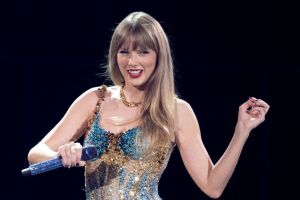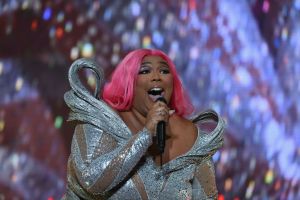In last weekend’s Wall Street Journal, James R. Hagerty and Anne Steele argue that pop artists are using more imperfect — that is, half or slant — rhymes than before because of the pressure to be original in the age of Spotify. This, plus the influence of rap, which “requires verbal virtuosity,” they argue, “has upped the ante on originality in rhyming.”
Color me unconvinced.
Olivia Rodrigo rhymes “smart” with “car” in “Brutal.” Dua Lipa’s “Don’t Start Now” rhymes “full 180” with “crazy.” For Hagerty and Steele, these are examples of stunning creativity. But lyricists have been using slant rhymes for a long time. Why? Mainly because they are easier than perfect rhymes, at least in English. All you need is one similar phoneme, not, as in the case of a perfect rhyme, a matching vowel and (when relevant) consonant sound.
Slant rhymes also seem, as Hagerty and Steele note, more authentic. Perfect rhymes can seem formal, artificial, but slant rhymes, which sound closer to everyday English, seem more natural —we’re all Wordsworth’s children now. But this isn’t new.
Emily Warren, who writes for Dua Lipa, tells the Journal that “story lines have finally become more important to songs than rhyme schemes, hence the stretches to suit the narrative.” That “finally” is pretty rich. You don’t need half rhymes to tell a good story, and if anything, we’ve seen a decline in narrative in pop music.
Instead of Katell Keineg’s “Leonor” or Moe Def’s “Ms. Fat Booty,” we have Olivia Rodrigo’s “Driver’s License,” for example, which has been nominated for a Grammy this year. It starts:
I got my driver’s license last week
Just like we always talked about
‘Cause you were so excited for me
To finally drive up to your house
But today, I drove through the suburbs
Crying ’cause you weren’t around
You get the idea. A girl can’t wait to drive around with her boyfriend, but they break up before she gets her license. Thank goodness for half rhymes, though; otherwise, we may not have gotten that indelible image of a girl crying in her car after a break-up.
Or how about “Brutal”? It’s a song plumbing the depths of teenage self-loathing:
And I’m so sick of 17
Where’s my fucking teenage dream?
If someone tells me one more time
“Enjoy your youth,” I’m gonna cry
Rodrigo goes on to complain about not having friends, about being “a nervous wreck,” about having her ego crushed and about having a “broken heart.”
I could be wrong, but if you have to use half rhymes to tell ready-made stories in ready-made language, you’re probably not a genius.
Most songs today don’t even try to tell stories. They are composed of a string of statements about feelings or states of affairs, whether they make any sense or not, like the Weeknd’s “I can’t feel my face when I’m with you / But I love it,” which also includes this meaningless stanza:
And I know she’ll be the death of me, at least we’ll both be numb
And she’ll always get the best of me, the worst is yet to come
But at least we’ll both be beautiful and stay forever young
This I know, yeah, this I know
Bruno Mars has won 11 Grammys. He starts his nihilistic but catchy “That’s What I Like,” which won the Song of the Year at the 2018 Grammys, like this:
I got a condo in Manhattan
Baby girl, what’s happenin’?
You and your ass invited
So go on and get to clappin’
So pop it for a player
Pop, pop it for me
Turn around and drop it for a player
Drop, drop it for me
“Lucky for you that’s what I like,” he tells her at one point. I wonder if she feels the same.
In his recent book What’s Good: Notes on Rap and Language, Daniel Levin Becker argues that rap is one of the most vibrant linguistic art forms of the past fifty years. In an excerpt published in Paris Review, he praises 50 Cent’s “In Da Club.” The song is about “a hustler,” Becker notes, as we see from the refrain “I’m into having sex, I ain’t into making love.” “It’s perfectly clear what he means by this,” Becker writes, “he doesn’t have time for romance. He’s not a player, he’s a hustler. No nonsense, all grind.”
But something happens in the next line — “So come give me a hug if you’re into getting rubbed” — which haunts Daniel Levin Becker:
How do you follow such a pearl of rhetorical legerdemain as the sex/love line with that? This question haunts me.
It’s not wholly displeasing to the ear: the internal vowel rhyme is a nice touch, as is that third into binding the lines together. But what does getting rubbed mean? Does it mean being sexually serviced in crude, utilitarian fashion? Does it mean being murdered? Will 50 Cent kill anyone who touches him, or accept a tender embrace on the condition that it lead straight to intercourse?
A mystery for the ages.
However interesting the ambiguity of the individual line might be, it doesn’t alter the song at all. However you read it, it merely confirms that 50 is a hustler. It’s a straightforward song, expressing a straightforward sentiment.
I confess I don’t understand this need to make popular music into some great artistic achievement. I like Snoop Dog, Primus, early Van Halen, some Justin Timberlake. I listen to pop while driving to work or working out. It helps pass the time or get my heart rate up for intervals on the indoor trainer. “Hey Ya” is for dancing, not scanning. Surely that’s enough.


















